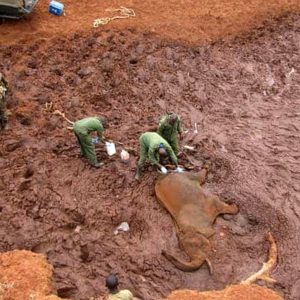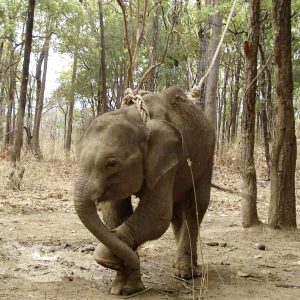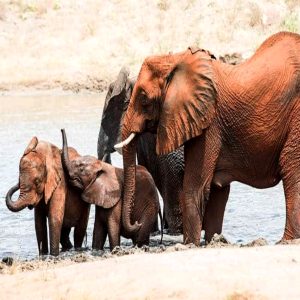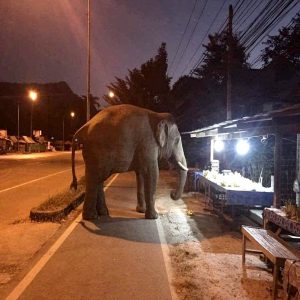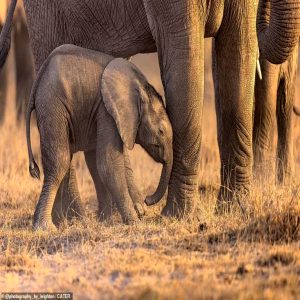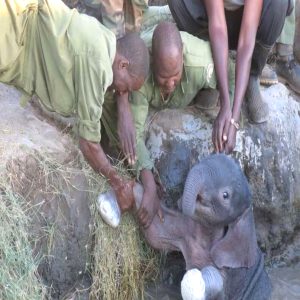The twins’ birth was witnessed by tourists in the Bandipur Tiger Reserve in Karnataka state in India, The Hindu reported on Thursday.
However, when officials from the Forest Department arrived to the spot, they found the twins had become trapped in a crater filled with water, shortly after their birth.
Director of the Bandipur Tiger Reserve, Ramesh Kumar, told The Hindu that the mother was attempting to save her calves when they arrived at the spot.

However, forest officials noticed she was struggling to rescue them on her own. Kumar said they observed the situation for a while and noticed the twins were gradually becoming exhausted with the efforts of staying afloat.
When it became clear the calves would drown if they did not intervene, the Forest Department decided to step in.
In order to save the calves, the department split up into two groups. One group distracted the mother so that the other group could focus on getting the twins out of the water. Once they succeeded in rescuing the twins, the mother ran over to be reunited with her newborns before disappearing into the forest, Kumar told The Hindu.
Elephant twins are extremely rare. Usually, the mother does not have enough milk to support two calves, and more often than not, one of the twins dies. Their survival largely depends on the experience of the mother and the conditions of the surrounding environment. It is not clear whether this elephant has had previous calves.
Non-government wildlife organization, the Coimbatore Wildlife Conservation Trust, shared a video of the newborn twins to Facebook, shortly after their birth. In the video, the twins appear uneasy on their feet as they follow their mother down a bank.

According to the trust, it is the first time twins have been spotted in this nature reserve.
Elephants are fiercely loyal creatures—it is not uncommon for mothers to stand by their calves, even when there is no hope of rescue.
Female elephants tend to stay with their mothers for the rest of their lives, while males branch off when they become older. Asian elephants usually travel in herds, however this particular female elephant had been alone. Usually, the rest of the herd would help the mother rescue her calves and protect them from potential danger.
The mother and her calves are doing well so far, according to The Hindu. In the last 48 hours, more tourists have spotted them within the reserve.
